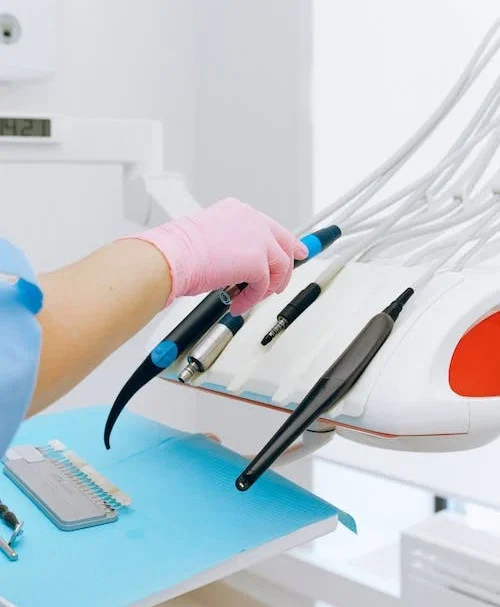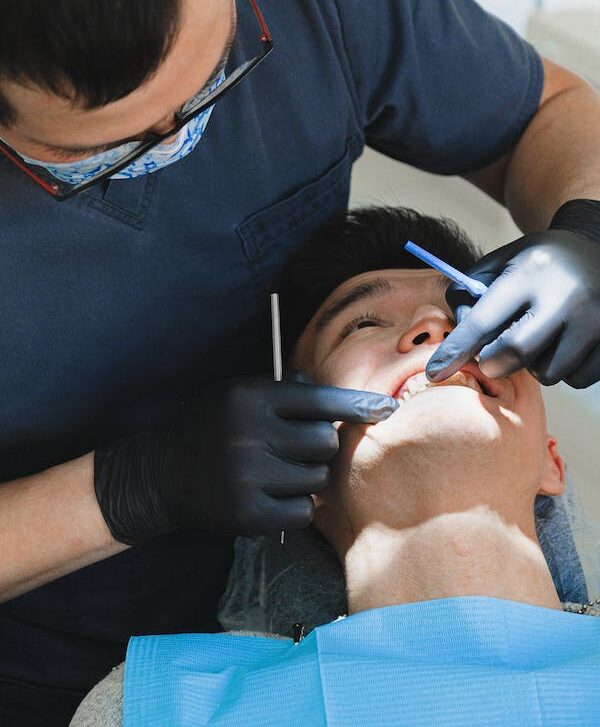
Normal chewing results in brief intervals of contact between teeth. Under normal circumstances, your teeth should only contact for about 5 minutes each day. Slight amounts of wear over years of use is common.
Sometimes teeth develop a flattened, worn appearance. X-rays may show unusually thin layers of enamel as if sandpaper has been drawn across the chewing surfaces of the teeth. Daily chewing shouldn’t erode the enamel so much.
Some patients develop a subconscious habit of grinding their teeth, either during the day or at night. In many cases, the abrasive action occurs only during sleep, and for only a few seconds at a time. If you wake up with a sore jaw or a morning headache, chances are you are grinding your teeth during the night.
In some patients, enlarged jaw muscles develop on the sides of the face from this nighttime grinding. These muscles are, ounce for ounce, the strongest in the body, which means they can do a lot of unnecessary damage.
The unusual activity not only wears down teeth and strains the overworked muscles, but compressive forces can also damage the complex jaw joints on one or both sides. Damage to the joints may lead to arthritic changes, chronic pain, and popping or clicking. Once these changes settle in, reversing their condition may become impossible.
If you’re waking up with a sore jaw or headaches, or you’ve noticed chips or flattening of your teeth, a consult with our doctors is recommended. The sooner the problem receives attention, the less damage there will be. Often a custom-fit night guard will eliminate the symptoms while protecting your precious enamel.
Daytime habits of clenching or grinding deserve attention too. Our doctors will analyze your bite and make sure they’re moving against each other properly when you chew. Regardless of the cause, reducing the strain on the jaw and your teeth as quickly as possible can save you money and time spent in the dental chair.

Monday: 7:30am – 4:00pm
Tuesday: 7:30am – 4:00pm
Wednesday: 7:30am – 4:00pm
Thursday: 7:30am – 4:00pm
Friday: Closed